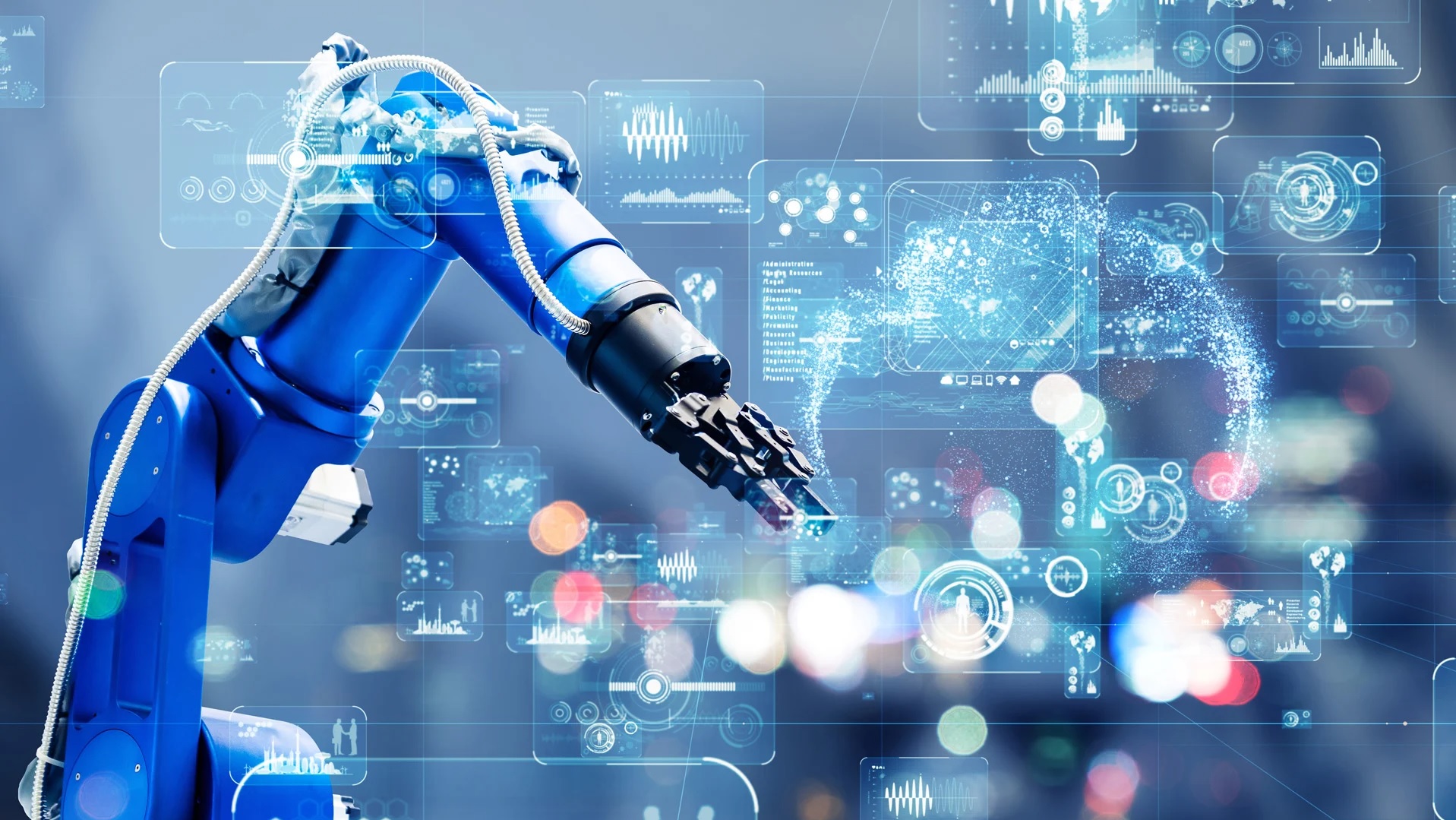In recent years, there has been a significant increase in the use of artificial intelligence (AI) in the automation industry. As we enter the era of Industry 4.0, where technology is increasingly integrated into all aspects of production, the implementation of artificial intelligence becomes crucial for companies that want to remain competitive and efficient.
Automation and artificial intelligence (AI) are two topics that already appear in every modern industrial project, so it is not surprising that both fields are developing rapidly and offer a number of benefits for companies that decide to use them.
In the next entry in the series, we will take a closer look at how automation and AI can be used in industry, what are their limitations and future development prospects.
Combining technologies always doubles the benefits?
Automation is a field that is responsible for the design, production and use of machines and devices that automatically perform certain activities. In industry, automation is mainly used to increase production efficiency and quality, as well as to reduce costs. In industrial automation, thanks to the automation of production processes, enterprises can work faster, more accurately and more efficiently.
Artificial intelligence, on the other hand, is the field of creating computer systems that can perform tasks that, due to the complexity of the processes, required human intelligence. One of the main ways of using artificial intelligence in the automation industry is the development of intelligent machines and robots and the automation of production processes. Thanks to artificial intelligence, machines can work faster and more accurately, which allows for increased efficiency and savings. New AI systems also allow for the automation of decision-making processes and increase the precision of actions, a good example is the use of AI to predict machine and equipment failures, thanks to the collection and analysis of data from machines, ensures early detection of potential problems and failure prevention, and also allows for the improvement of processes related to with resource management, such as production planning or warehouse management. Thanks to the use of artificial intelligence, machines can recognize and repair faults themselves, which reduces downtime and increases work safety.
AI also allows for more precise adjustment of production to market needs, which in turn translates into better use of resources. AI is also used in the automation of logistics processes. Thanks to artificial intelligence, logistics systems can plan routes and optimize the flow of goods themselves, which reduces delivery times and costs.
The efficient use of automation and artificial intelligence in industry therefore brings many benefits in key industrial areas from every branch. Summarizing the above paragraphs, the benefits of the implementation include:
- increasing the effectiveness and efficiency of production processes
- improving product quality
- increasing employee safety
- cost reduction
- the ability to automate difficult and dangerous tasks
- automation of decision-making processes
- production planning or warehouse management
- Analytics and predictive maintenance
What are the challenges and constraints for successfully implementing AI?
However, like any solution, automation and AI also have their limitations. First of all, they require a high initial investment, both in hardware and software. Another limitation is the need to have suitably qualified personnel who will be competent to design, configure and maintain automation and AI systems.
Lack of understanding of the technology by many professionals in the field Although AI has been around for decades, it is still a relatively new technology in the world of industrial automation, and many professionals may not have the knowledge or skills necessary to use it effectively. This can lead to implementation problems and may also limit the effectiveness of the technology.

Another limitation of artificial intelligence in industrial automation is the lack of standardization. As AI is a relatively new technology, there are currently no standardized methods or protocols for its use in industrial automation. This can lead to confusion and inconsistency in the implementation of AI systems, which can affect their effectiveness.
Possible errors. AI systems are only as good as the data they are trained on, and if the data is inaccurate or incomplete, the system can make wrong decisions. There is also the potential for AI systems to make decisions that are inconsistent with company policies or regulations.
There is also the issue of transparency as AI systems can be difficult to interpret and understand. This can make it difficult for people to understand how the system came to a particular decision, which can lead to mistrust and disapproval.
Other limitations to the use of AI in industrial automation are mainly related to costs and implementation difficulties. Appropriate infrastructure and expertise are required, which can be costly for companies. It is equally important to ensure access to data, because AI needs a lot of data to learn and operate effectively.
So what awaits the industries?
In the future, automation and AI will play an increasingly important role in industry, as these technologies, used together, will allow for more efficient and flexible adaptation of production to changing market needs. It is also likely that automation and AI will allow the creation of new, previously impossible tasks, as well as the development of new industries.
Despite the challenges facing the industries, the use of artificial intelligence in automation is a trend that will continue and with the development of technology and the decrease in the cost of implementing artificial intelligence, more and more companies will begin to integrate artificial intelligence in their operations. The potential benefits of using artificial intelligence in industrial automation, despite the limitations, far outweigh the challenges. As technology continues to develop and improve, it is likely that many of these limitations will soon be overcome, allowing for even greater use of AI in the industrial automation industry.
Finally, remember to subscribe to the newsletter to stay up to date with the latest news from the Industrial Automation industry. Also, if you need electronic components, get a quote from Oem24 today.

